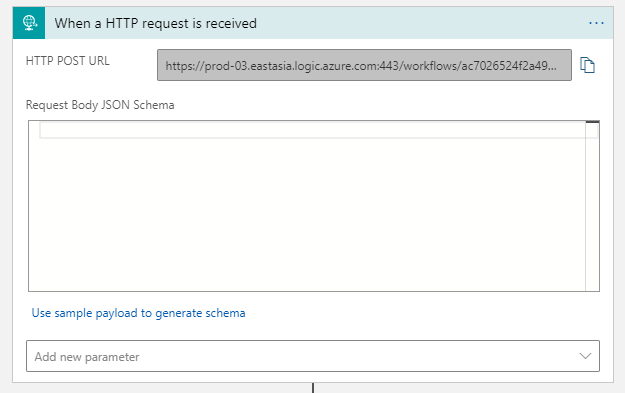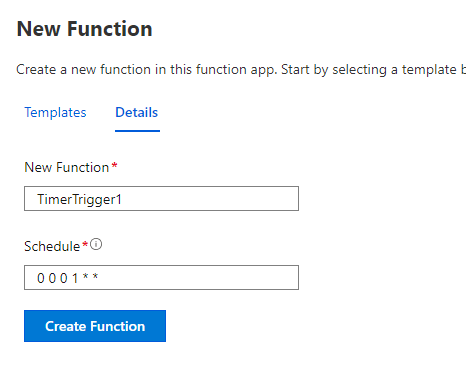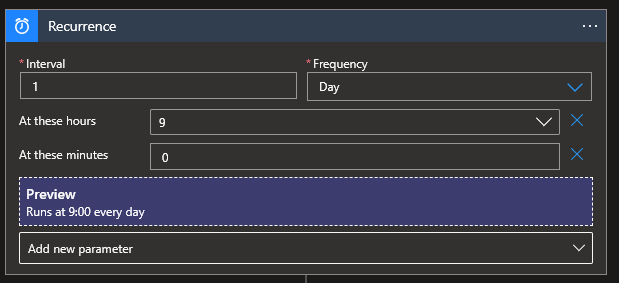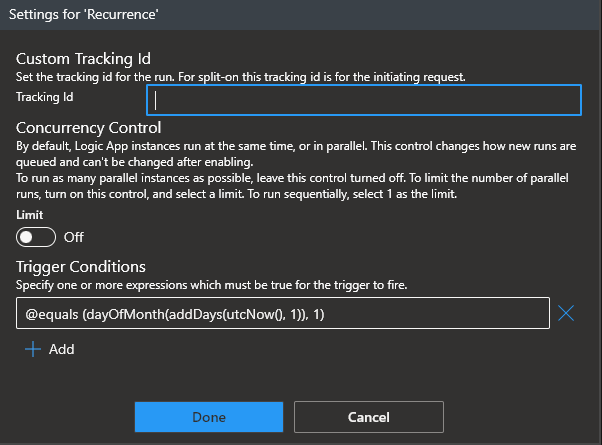For this problem, I think there are two options to choose. I describe both of them detail below:
1. You can set the "Recurrence" like below screenshot.
![enter image description here]()
Set the "Interval" and "Frequency" as every month and set the "Start time" from 2020-12-01T00:00:00Z. Then the trigger will be triggered at the beginning of next month and then triggered every month (here assume that the first second of the month is the last second of previous month).
Please not: I'm not sure if the "Recurrence" trigger in logic app works with cron expression in backend. So we don't know the next trigger will happen on the first day of next month, or happen on the day after 30 days(just add 30 days). As the time span is one month, so I can't test the result now. If you want to know the accurate answer, you can raise a support ticket on azure portal to ask Azure support team.
2. Set the logic app trigger by "When a HTTP request is received". You do not need to define any other configuration such as request body... Just need to create the trigger like below screenshot.
![enter image description here]()
Then create a Azure function with timer trigger. When you create the function, please set the cron expression as 0 0 0 1 * * like below screenshot.
![enter image description here]()
The cron expression means the function will be triggered every 1st of month (at 00:00:00).
Then in your timer trigger function code, modify the code to:
using System;
using System.Net.Http;
public static void Run(TimerInfo myTimer, ILogger log)
{
log.LogInformation($"C# Timer trigger function executed at: {DateTime.Now}");
HttpClient client = new HttpClient();
client.PostAsync("copy the trigger url of your logic app here", null);
}
Save the function, the function will be triggered every first day of month(at 00:00:00). In function code, it will request the url of your logic app to trigger the logic app.
By the way, when you create the azure function app, you can choose "Consumption plan" then you will not pay much money for the function.





